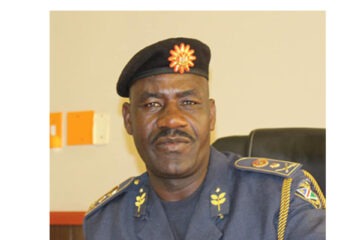Erasmus Shalihaxwe
The absence of a national artificial intelligence (AI) strategy or policy is limiting Namibia’s ability to coordinate and govern AI development in a holistic and forward-looking way.
This was the message from minister of education, innovation, youth, sports, arts and culture Sanet Steenkamp during the launch of the Artificial Intelligence Assessment Methodology report on Monday. Her speech was delivered by deputy minister Dino Balloti.
Steenkamp said the lack of a regulatory framework specific to AI increases the risk of unchecked technological experimentation, algorithmic bias, and harm to vulnerable populations. She highlighted digital divides in gender, geography, income, and disability, with broadband coverage, digital literacy, and access to devices still limited in rural and low-income areas.
“While Namibia has strong innovation potential, AI research and private sector involvement remain nascent. There is a clear need to support AI startups, invest in local innovation ecosystems, and establish public-private partnerships,” she said.
She noted that public awareness of AI is low, while the media and civil society have limited capacity to engage with AI issues, undermining inclusive policy dialogue and democratic oversight.
“Let us be clear. Our readiness to harness AI will define the trajectory of our future. The report provides important guidance, which will help shape Namibia’s path forward,” Steenkamp said.
She called for the creation of a national AI strategy, the establishment of a multi-stakeholder advisory council, stronger data governance, investment in infrastructure, support for innovation and research, inclusive education and digital literacy, ethics in curricula, public awareness campaigns, regional cooperation, and integrating AI into national development planning.
“AI is not just about machines and algorithms. It is about people. It is about ensuring that children in rural Namibia benefit from adaptive learning platforms, that farmers can access climate-smart data, that healthcare workers are supported with diagnostic tools, and that our youth can create, innovate, and thrive in the Fourth Industrial Revolution,” she said.
Namibia is among the first African countries to pilot the Artificial Intelligence Assessment Methodology report. Steenkamp described AI as the defining technology of the present time, capable of transforming economies, reshaping education and health systems, and addressing longstanding development challenges.
She warned that AI is not neutral, as it reflects the values, biases, and priorities of the societies that build and deploy it.
“But the report also identifies important challenges, which we must urgently address. Namibia currently has no dedicated national AI strategy or policy. This limits our ability to coordinate and govern AI development in a holistic and forward-looking manner,” she said.
Deputy executive director for higher education Lisho Mundia said the launch marks an important step in the country’s journey toward ethical, inclusive, and sustainable technological development.
“The report is not merely a technical document. It is a mirror that reflects where the country currently stands, where it aspires to go, and what gaps must urgently be addressed in order to build a digital future that benefits every Namibian,” Mundia said.
In 2021, the 193 member states of UNESCO adopted the recommendation on the ethics of AI. Since September 2022, Namibia has worked with UNESCO to convene the UNESCO Southern Africa sub-Regional Forum on Artificial Intelligence.




